Postpartum Hair Loss: 5 Home Remedies Every New Mom Should Try
Discover effective home remedies for postpartum hair loss with natural solutions that help new moms restore hair health and combat thinning.

Hello, new moms out there!
Pregnancy is the most beautiful period of any woman’s life, and the body undergoes changes from head to toe. It is a roller coaster for nine months that we, as women, enjoy immensely. But along with this enjoyment come some hard-to-ignore changes, one of which is hair loss. Yes, postpartum hair loss is very common, and almost every woman goes through it.
It can be disheartening to see chunks of hair coming out every time you run your fingers through it. But there’s no need to worry! We’re here to share some of the most amazing home remedies for postpartum hair loss that will surely work wonders for you.
Before we dive into the remedies, there are a few things you should keep in mind:
What Can Help With Postpartum Hair Loss?
- Eat a well-balanced and nutritious diet. Include green vegetables and fiber-rich foods such as oats, fruits, etc.
- Consult your gynecologist for some vitamin supplements.
- Avoid hair styling for a while, as it can increase hair loss and cause more damage.
- Consider trimming your hair to keep it looking good even without styling.
- Use a mild shampoo and conditioner when washing your hair.
- Start doing yoga, as it can enhance the effectiveness of any remedy you try.
These simple steps can help keep your hair healthy and looking good.
Now, let’s explore some of the best home remedies for treating postpartum hair loss.
Home Remedies for Postpartum Hair Loss
1. Onion Juice & Curry Leaves
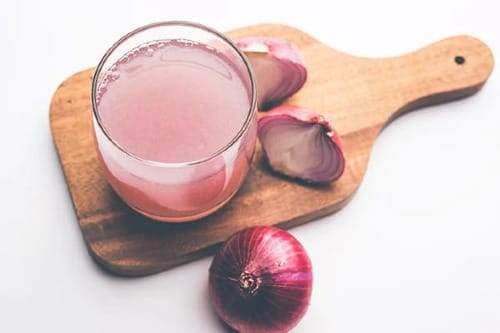
The sulfur in onions increases collagen production, promoting strong and thick hair, thereby preventing hair loss and encouraging growth. Onion juice also helps prevent premature greying, fights lice infestations, and prevents scalp infections.
Meanwhile, curry leaves are rich in antioxidants, vitamin C, and iron, which strengthen hair roots and prevent hair loss.
Instructions
- Take one onion and 4-5 curry leaves.
- Blend both ingredients in a mixer.
- Strain the juice from the onion pulp using a sieve and separate it from the pulp.
- Apply the onion and curry leaves juice to your scalp using a cotton pad or your fingers.
- Wear a shower cap and leave it on overnight. If you can’t tolerate the smell, wash it off after 30 minutes to an hour.
- Rinse with a mild shampoo.
2. Fenugreek Seeds
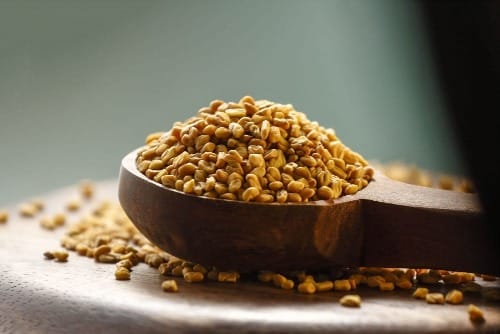
Fenugreek seeds are rich in iron and protein, essential for hair growth. They also contain plant compounds like flavonoids, which induce hair growth due to their anti-inflammatory properties.
Instructions
- Soak some fenugreek (methi) seeds in a glass of water overnight.
- In the morning, drain the water and blend the soaked seeds into a smooth paste.
- Add a small amount of coconut oil and apply it to your scalp.
- Leave it on for at least an hour, then rinse with a mild shampoo.
- Repeat once a week for the best results.
3. Amla Powder With Egg White
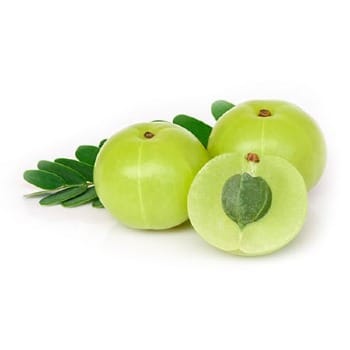
Amla is a citric fruit that thoroughly cleanses the scalp and provides essential nutrients for hair growth.
Eggs have conditioning properties, cleanse the scalp of excess oils, strengthen hair, promote growth, and fight dandruff.
Instructions
- Take some dried amla and make a powder, or purchase ready-made amla powder from the store.
- Mix one egg white with the amla powder to form a smooth, consistent mixture.
- Apply the hair mask to your hair and scalp, leaving it on for 30 minutes.
- Rinse with a mild shampoo.
- Apply this hair mask twice a week for the best results.
4. Amla, Reetha & Shikakai Hair Mask
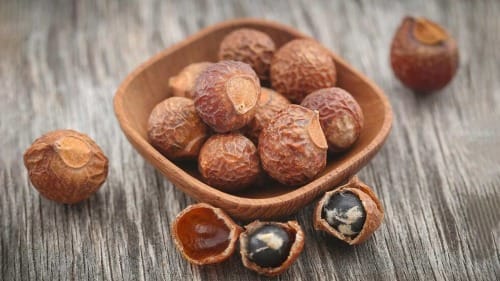
Reetha controls dandruff and enhances hair growth, while shikakai soothes the scalp, preventing hair breakage caused by an unhealthy, dry scalp. Amla, with its citric nature, thoroughly cleanses the scalp and provides essential nutrients for hair growth.
Instructions
- Take equal amounts of amla, reetha, and shikakai, and make a powder.
- Mix the powder with curd or water to create a hair mask.
- Leave the mask on for one hour, then rinse thoroughly.
- Repeat for the best results.
You can also buy amla, reetha, and shikakai powder online to simplify the process.
5. Kalonji, Fenugreek, and Coconut Hair Oil
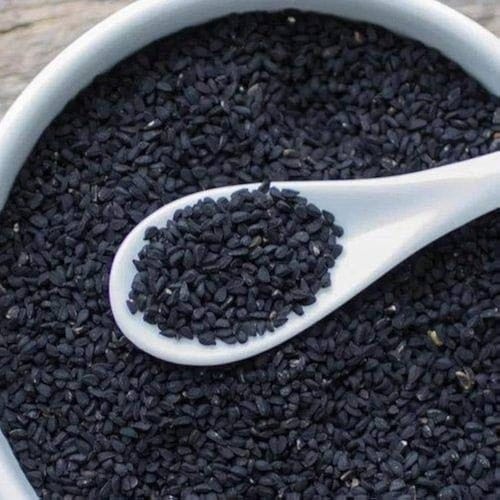
Kalonji oil is rich in antioxidants and has antibacterial, antifungal, and anti-inflammatory properties, making it one of the best oils for hair. It is known to reverse hair damage and aid in regrowth.
Fenugreek seeds are a rich source of iron and protein, essential for hair growth.
The vitamins and fatty acids in coconut oil will make your hair healthier, thicker, and shinier.
Instructions
- Take equal amounts of kalonji seeds and fenugreek seeds.
- Blend them into a fine powder.
- Mix two tablespoons of this powder into 200 ml of coconut oil and stir well.
- Keep this oil in direct sunlight for three days to help the coconut oil absorb the properties of the kalonji and fenugreek seeds.
- After three days, start applying the oil to your scalp and rinse with a mild shampoo.
- Applying this oil two to three times a week will significantly reduce hair fall and promote new hair growth.
So, ladies, these are some of the best home remedies for postpartum hair loss that you should try at least once. These remedies will also work for any kind of hair loss or thinning. Give them a shot and share your experience with us!
Frequently Asked Questions
Q1. Will postpartum hair loss grow back?
Yes, postpartum hair loss is temporary, and your hair will eventually start growing back. You just need to pamper your body and hair a little.
Q2. How long does postpartum hair loss last?
It usually lasts for about 3-4 months, after which your hair will gradually start growing back, and hair loss will decrease.
Q3. Which vitamins should I take for hair loss?
Biotin (Vitamin B7), Vitamin E, and Vitamin C are the best vitamins for keeping your hair healthy. Low levels of these can cause hair loss, brittle nails, and skin rashes.
Q4. Can thin hair become thick again?
If your hair has become thin due to a medical condition, it could grow back thicker. However, if it is genetic, no remedy can completely alter it.




